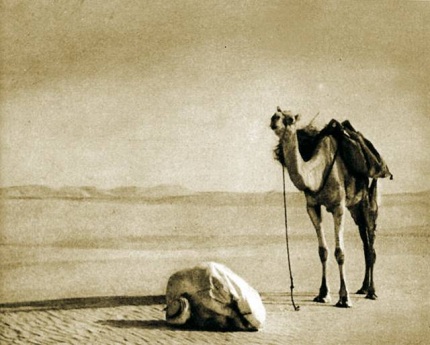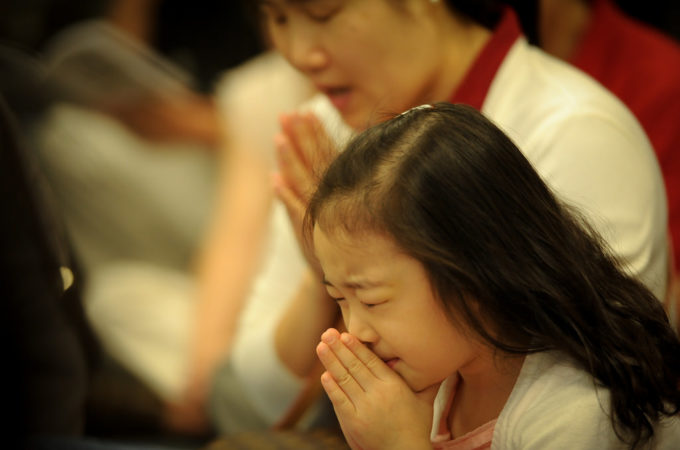All societies have acknowledged and practiced prayer of some kind to one or another deity. The contrary claim of atheists notwithstanding, to be human is to worship and thus to recognize the presence of a being greater than oneself. Given that, it’s a natural next step to ask that deity for help. Or thank him for blessings. Or intercede for his intervention in the life of another. All these are forms of prayer. And prayer is one of the seven virtuous behaviors exhorted in Proverbs.
We’ve noted earlier in this series that Proverbs is not salvific in character. The great Hebrew themes of the temple, the sacrifice system, the priesthood are not to be found here. Rather, the writer’s concern is how to thrive in the here and now.
Having said that, it’s important not to lose sight of the Christological dimension of all the Old Testament, per Jesus’ claim, “everything written about me in the Law of Moses and the Prophets and the Psalms must be fulfilled,” Luke 24:44 ESV. Proverbs, for example, whispers throughout of One to come who is himself “the wisdom of God” (1Cor 1:24).
What is more obvious and overt in this book is lots of counsel and advice for practical, everyday needs: relationships, work, dealing with authority, resisting temptation, marriage, parenting, avoiding folly, learning wisdom, et al. This focus on earthly life does not reduce Proverbs to a “secular” work, as there is no artificial divide between the sacred and the secular. It retains a strong Godward direction and points the reader to walk in His ways. And the theme of prayer is one means by which the writer commends a godly life.
The Hebrew writers of Proverbs used a term, פָּלָל (Palal), which means “prayer, plea, request, and petition, i.e. the act of speaking to or making requests to God.”
Let’s consider some of what Solomon has to say about prayer.
 The sacrifice of the wicked is an abomination to the LORD, but the prayer of the upright is acceptable to him, 15:8. Note the contrast between: 1) sacrifice and prayer, 2) the wicked and the upright. A sacrifice is much more active, requires considerable physical effort, more costly, and “as a material and legally-required performance, is much more related to dead works than prayer freely completing itself in the word,” (Keil-Delitzsch, vol 6, p 320).
The sacrifice of the wicked is an abomination to the LORD, but the prayer of the upright is acceptable to him, 15:8. Note the contrast between: 1) sacrifice and prayer, 2) the wicked and the upright. A sacrifice is much more active, requires considerable physical effort, more costly, and “as a material and legally-required performance, is much more related to dead works than prayer freely completing itself in the word,” (Keil-Delitzsch, vol 6, p 320).
- The LORD is far from the wicked, but he hears the prayer of the righteous, 15:29. Here’s another contrast, this time between the wicked and righteous, in terms of the proximity of God to each. We can picture the Lord hovering near the righteous person who is praying, while standing off from the wicked.
- If one turns away his ear from hearing the law, even his prayer is an abomination, 28:9. Going on from the verse above, the wicked, too, might undertake to offer a prayer. But God has no truck with open rebellion. To reject Him and then try to pray to Him is self-defeating folly.
Our prayer habits are a good indicator of our sense of reliance on God. Besides the actual mention of prayer in Proverbs (3:6; 15:8, 29) some parallel exhortations feed the concept. A good example is the fear of God. We read the phrase the fear of the Lord 14 times in the book. This is another example of a virtue the writer commends for a flourishing life: The fear of the LORD leads to life, and whoever has it rests satisfied; he will not be visited by harm, 19:23.
Here’s a pair of verses that treat two sides of one coin. On one side, we are warned to avoid pride: Be not wise in your own eyes; fear the LORD, and turn away from evil, 3:7. On the other side, we are encouraged to seek to practice humility: The reward for humility and fear of the LORD is riches and honor and life, 22:4.
Noah Webster defined prayer as, “in worship, a solemn address to the Supreme Being, consisting of adoration, or an expression of our sense of God’s glorious perfections, confession of our sins, supplication for mercy and forgiveness, intercession for blessings on others, and thanksgiving, or an expression of gratitude to God for his mercies and benefits” (Webster’s 1828).
The fear of the LORD is described as
- a fountain of life, 14:27
- the beginning of knowledge, 1:7
- the beginning of wisdom, 9:10

- instruction in wisdom, 15:33.
A humble posture, a prayer offered in the fear of God, confers immeasurable benefit. Humans go to great lengths to extract precious resources from the earth, but nothing in the ground can match the value of prayer. Gold, diamonds, oil … all these are trivial in comparison. Individuals and nations that learn to live in the fear of God and practice the virtue of prayer unlock a “supernatural” resource far beyond the value of any “natural” resource.
At least some of the US founding fathers acknowledged the value of prayer.
I earnestly pray that the Omnipotent Being who has not deserted the cause of America in the hour of its extremist hazard, will never yield so fair a heritage of freedom a prey to “Anarchy” or “Despotism.” George Washington (There’s a prayer with immediate relevance in 2017!)
I therefore beg leave to move that henceforth prayers imploring the assistance of Heaven, and its blessings on our deliberations, be held in this Assembly every morning before we proceed to business. Benjamin Franklin
John Adams declared days of prayer and fasting for the nation, as did Abraham Lincoln, who said, “It behooves us … to humble ourselves before the offended Power, to confess our national sins, and to pray to the God that made us.”
Tragically, that sentiment became a casualty to a seeping naturalism in the society. One evidence? About 150 years later, the US Supreme Court, in a finding based on the Establishment Clause (“Congress shall make no law respecting an establishment of religion, or prohibiting the free exercise thereof”), would prohibit prayer in public schools.
Contrast that with Zambia’s president Edgar Lungu,
I wish to thank the Almighty God for allowing us to assemble and observe the day of repentance, reconciliation, prayer, and fasting. I personally believe that since we humbled ourselves as a people and have sincerely cried out to the God of Abraham, Isaac, and Jacob, he has heard our cry, has forgiven our sins, and will surely heal our land.
May his tribe increase … over the whole earth.
- Darrow Miller and Gary Brumbelow







4 Comments
PHILLIP CUMMINS
March 27, 2017 - 6:14 pmThank you Darrow and Gary, well said!!
I live in Central Indiana and we are starting to see a major shift away from public schools and I honestly feel that this is a direct response of the loss of God as a Baseline for a way of life for our young in the public school setting.
Thank you again for great words of truth well defined!!
Phil Cummins
admin
March 28, 2017 - 5:32 amThanks, Phil, for your response. May the grace of Christ continue to abound in your life.
Gary Brumbelow
Romina Aliaga
April 2, 2017 - 1:53 pmGracias por articulo, me anima a seguir orando por mi pais(Perú). Me alienta a insistir aunque no se vean cambios notables inmediatamente. Dios obrara en su perfecto tiempo.
admin
April 4, 2017 - 2:29 pmThank you for your article, it encourages me to continue to pray for my country (Peru). It encourages me to insist even if you don’t see notable changes immediately. God will work in His perfect time.
Romina, it is good to hear that you have been encouraged